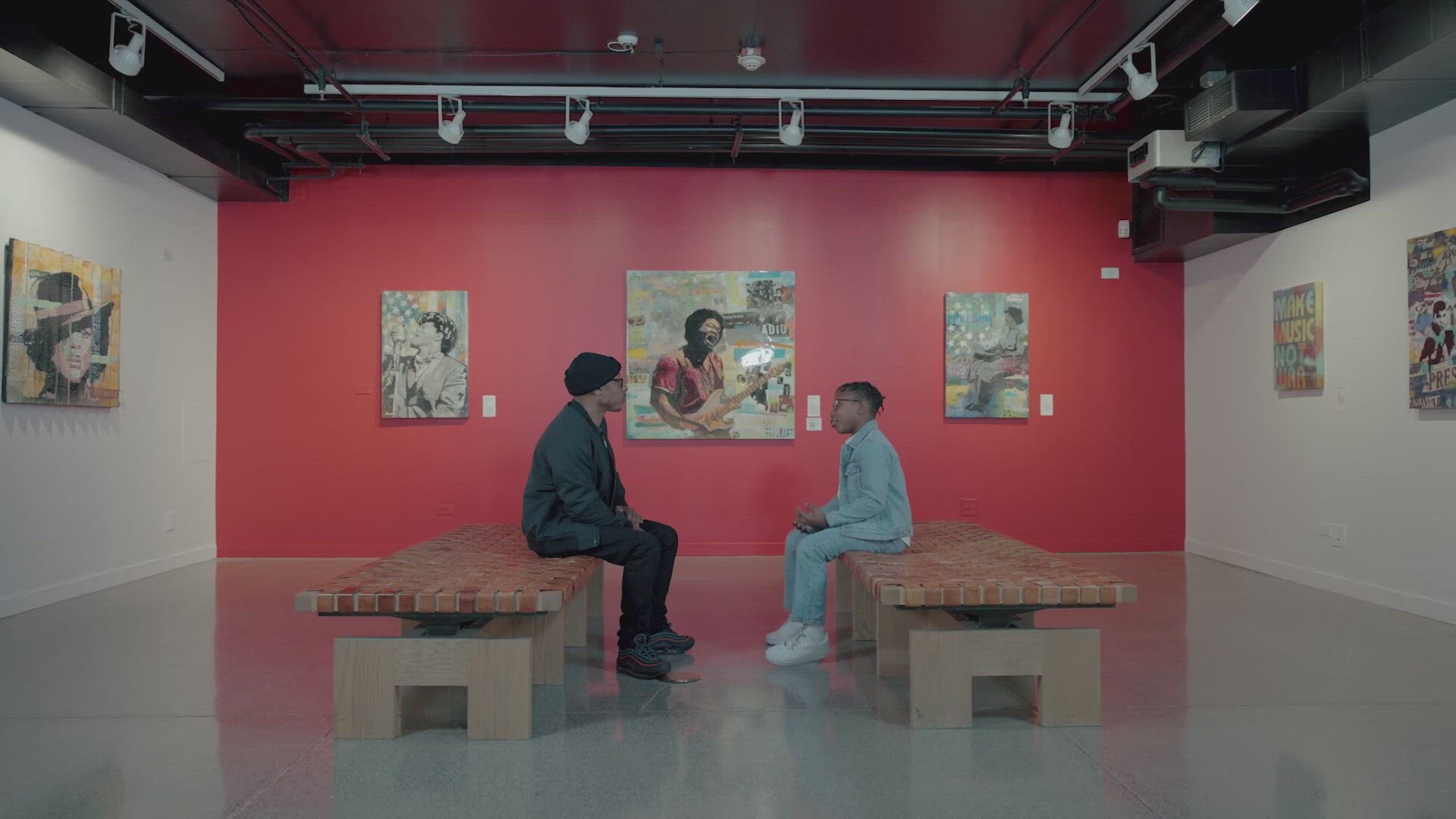SEATTLE — "So dad, what was it like growing up young and Black back in your time."
“OK, well we’re going there, huh.”
Surrounded by the artwork and exhibits of the Northwest African American Museum, Chris and his 11-year-old son Amari had an honest conversation about what it means to be Black in America — in the past, today, and looking forward to the future.
KING 5 is sharing this conversation in a series of vignettes during Black History Month that captures an intimate and enlightening discussion about the nuances of Black identity, weaving together themes of heritage, resilience, pride and the importance of family.
Viewers may remember Amari from a speech he gave during the Martin Luther King Day rally in Seattle’s Central District in January. He spoke with confidence and a unique voice.
In collaboration with nonprofit Speak with Purpose, KING 5 invited Amari and his dad to share their experiences with even more of the community.
Amari's dreams
Chris: Describe some of your dreams and aspirations. What's your pie in the sky out here right now?
Amari: Pie in the sky? I'm still young. I'm 11. Turning 12 this year.
Chris: But if you can grab your magic lamp and do whatever you want, what does that look like?
Amari: Definitely go to college. Get more education. As you always said to me, knowledge is power. You thrive on knowledge. So that's why I think education is definitely important. And then after that, I want to start my own business and become successful in it.
Chris: That's a good thing. That's a good place to be as opposed to unsuccessful in it.
Proud to be Black
Amari: Back in your day, what made you proud to be Black?
Chris: All the stories from before me. Black people in general overcoming just tremendous amounts of pain and struggle –
Amari: Adversity?
Chris: That's the perfect word I was looking for. We could also see that there was so much hope and potential for us as a people because we did have this burgeoning youth culture going on with hip-hop. We had artists that were changing the landscape of the entire world.
Amari: What artists?
Chris: Michael Jackson was a huge artist. Prince was out there at that time period. And obviously, you know, rap music took over. You had Run-D.M.C. and people like that, but it was the people behind the scenes, too, that were changing the game. So, they were changing our idea – even when I was your age – about what we could do. We had the "Three Mikes." We had Michael Jackson, Michael Jordan, Mike Tyson. We had so many different examples of us exceeding and excelling beyond what people believed we could do.
Amari: What makes me proud to be Black is the people around me, my community, who I'm surrounded by. Ever since we've been to that George Floyd march. I have to say I've been proud to be Black. Not only that, but Black people have done amazing things.
Chris: Is there something that you value about the experience of being Black?
Amari: The resilience of Black people. We have come a long way from being enslaved. Then after that racism. We've held up with it. We've stuck with it. We've done all these things. It's hard not to be proud of being Black.
Hope for the next generation
Chris: My hope for your generation is that you guys take the baton and carry it a lot faster, a lot further than we're carrying it right now. I think there are so many things that are beginning open up for us as a people and our culture. You guys have a voice, and that voice is worldwide. When I was coming up, it wasn't a given that when a person, especially a Black person or a young person had something to say, that people would listen or be ready to listen. Right now, I do think that people are ready to listen to young people, and I think that your voice has a lot more value sometimes than you even think it does.
Resilience and admiration
Amari: To me, you are the most resilient of them all. To having kids when you were like 20 years old to raising me, I know that's a challenge. It's really admirable to see this person sitting right in front of me, just guiding me through my entire life.
Chris: You're a family-oriented guy even in this stage. You understand the value of family. You understand the value of the ecosystem that it takes to create greatness. It's important to have your tool kit. And I think right now you have several tools that you can work with and I'm just excited to see where that goes. I love you, man.
Amari: I love you too.

